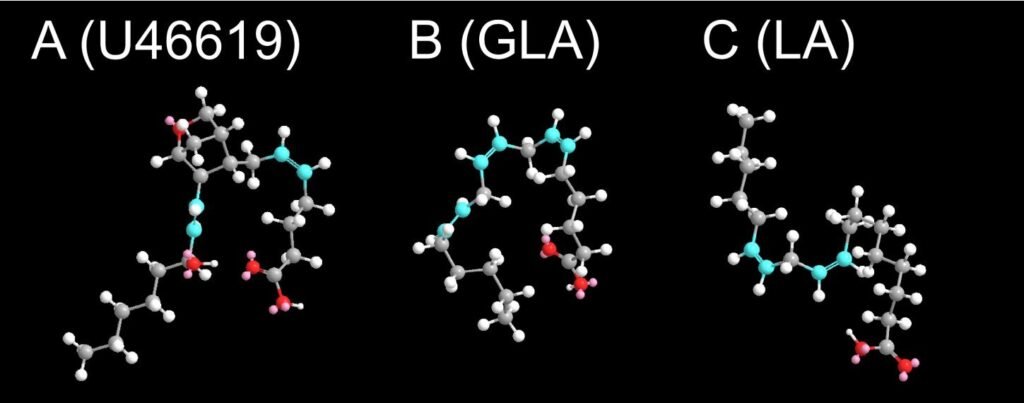A recent study conducted by Toho University has shed light on the potential benefits of gamma-linolenic acid (GLA), a fatty acid commonly found in plant oils like evening primrose and borage. The research indicates that GLA has the ability to relax constricted coronary arteries by blocking a crucial receptor involved in blood vessel contraction. This discovery could have significant implications for the prevention of coronary spasms and angina.
The findings of this study, which have been published in the Journal of Pharmacological Sciences, were spearheaded by Dr. Keisuke Obara, Dr. Kento Yoshioka, and Professor Yoshio Tanaka from the Department of Chemical Pharmacology at the Faculty of Pharmaceutical Sciences.
Coronary artery spasms, characterized by the sudden narrowing of heart-supplying arteries, can lead to chest pain and increase the risk of heart attacks. The activation of prostanoid TP receptors, triggered by chemical signals like thromboxane A2 and prostaglandin F2α, is often at the root of this condition.
The Toho University team’s research focused on investigating whether GLA, an omega-6 polyunsaturated fatty acid, could effectively block these contractions in isolated pig coronary arteries. The results showed that GLA was able to selectively inhibit contractions induced by TP receptor agonists, while having a minimal impact on other triggers of contraction. Further experiments confirmed that GLA functions as a competitive antagonist of the TP receptor, similar to omega-3 fatty acids such as EPA and DHA.
Lead researcher Dr. Obara noted the surprising discovery that GLA, a non-omega-3 fatty acid, displayed the same ability as omega-3s to inhibit TP receptor signaling. This challenges the conventional belief that only omega-3 fatty acids possess this vascular effect.
Moreover, the concentrations of GLA utilized in the experiments align with levels achievable through dietary supplementation. Additionally, GLA is metabolized into compounds that can help suppress inflammation, further enhancing its potential cardiovascular benefits.
These findings suggest that incorporating dietary GLA may aid in reducing the risk of coronary spasms and related heart conditions by blocking TP receptors in coronary arteries. However, additional studies are required to explore the effects of GLA in humans and verify its long-term safety.
For more information on this study, refer to the publication in the Journal of Pharmacological Sciences titled “Inhibitory effects of γ-linolenic acid on contractile responses in pig coronary arteries: Possible involvement of prostanoid TP receptor inhibition” by Keisuke Obara et al.
This research from Toho University highlights the promising potential of GLA in promoting heart health and offers new insights into the prevention of cardiovascular diseases.


